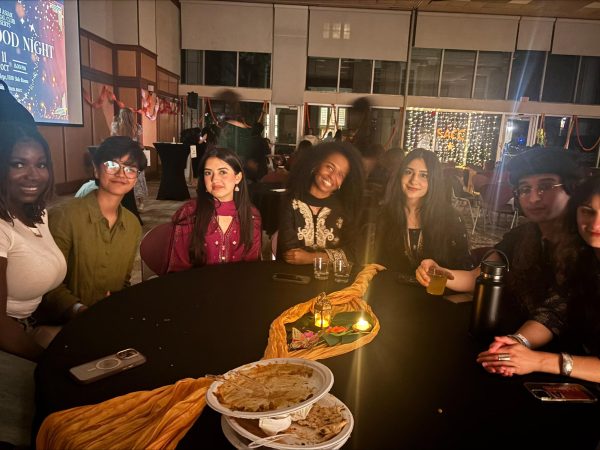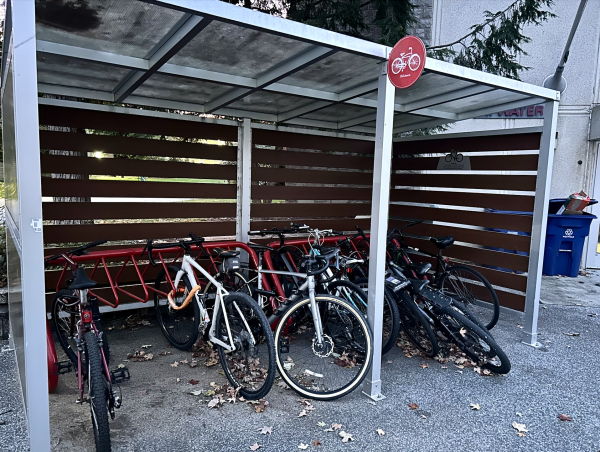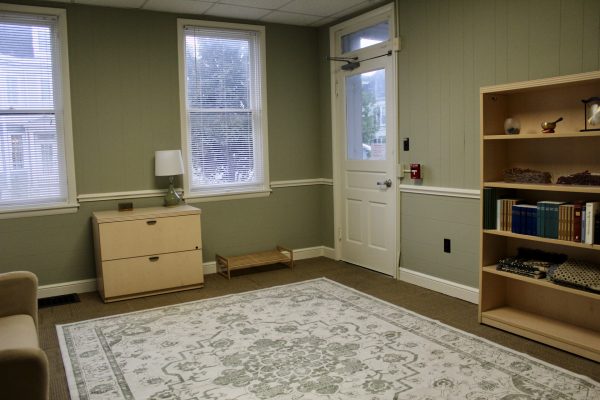Dickinson Initiative Champions ‘Dialogues Across Differences’
Noreen Lape, Director of Dickinson’s Multilingual Writing Center and Associate Provost of Academic Affairs, does not usually get fan mail from alumni about projects she leads on campus. But after news of the College’s Dialogues Across Differences program broke in Fall 2022, she received a handwritten letter from a member of the Class of 1969, who wrote “To see Dickinson at the forefront of this work is wonderful!”
The initiative, which includes faculty development, an interdisciplinary course, and paid dialogue facilitator positions for students, is supported by a nearly $300,000 grant from the Arthur Vining Davis Foundations.
Lape, who heads the program’s working group along with Assistant Professor of Philosophy Amy McKiernan and Assistant Professor of Political Science Katie Heard, said support for Dialogues Across Differences stems from the recognition that “the state of our discourse has gotten compromised.”
She said that dialogue “is something we need to focus on with the new generations. We have to do better than polarizing speech, than canceling, than not listening.” It is important to her, though, “that whatever we say, whatever ideas we share with each other, should not do dignitary harm to any of our community members.”
When talking about the initiative, President John E. Jones III said, “At Dickinson, we can be at the vanguard of a better dialogue.” When Jones spoke to Dickinson alumni across the United States last year, he encountered overwhelming support for this work. “[The initiative is] something that’s resonated everywhere we’ve gone,” he said.
Lape defined the program as the pursuit of “dialogue that allows us to explore new ideas, even ideas that make us uncomfortable or challenged…but it’s not harming [us] as a person.” In short, she said, the goal is “mutual understanding.”
One facet of Dialogues Across Differences is a faculty development program that began in Fall 2022. 21 faculty and staff members met two hours each month between September and December, then for a full day in January. The focus, said Lape, was equipping faculty with the tools to effectively facilitate dialogue in their classrooms. “They seem pretty excited about it,” she said, “and they saw the value of these techniques.”
Amaury Sosa, Assistant Professor of Spanish and Portuguese, said, “the dialogue provides frameworks for us, students and professors, to examine and connect our personal experiences, our intellectual curiosities, and academic endeavors. This will help us listen more intently and speak with others with whom we might disagree.”
Another cohort of faculty and staff will take part in a similar training starting in March, while participants from the first cohort are currently working on “follow-on grants” that will allow them to develop new courses or revise current ones with a focus on dialogue.
For students, an interdisciplinary course titled “Dialogues Across Differences” will run for the first time in Fall 2023. The 25 students in the class will learn about “different models of dialogue” from a team of faculty and staff including McKiernan, Heard, Assistant Professor of Educational Studies Kirk Anderson, Assistant Professor of Psychology Rui Zhang and Information Literacy Librarian Ian Boucher. “It’s going to be extremely team-taught,” said Lape, and includes “different professors from different disciplines bringing in different perspectives.”
Zhang, for example, will work with students to evaluate their learning. His role, he said, “is to collect and provide evidence showing that students who complete the program can demonstrate and act on the dialogue skills in their own work.” Zhang sees this as a crucial aspect of the course: “Assessment is an important part of finding out if and how much any participant (student or non-student) learns from the program,” he said.
Though some students have already been nominated by professors to take the course, Lape told The Dickinsonian that any student may undergo the interview process that decides who will join the program’s student coordinators in the class next fall. An information session about the course was held in the Social Hall at 7PM on Feb. 13.
Emerlee Simons ’24, one of the program’s student coordinators, will enroll in Dialogues Across Differences in the fall. She said, “The current cohort of Dickinson students have grown up in an era particularly fraught with self-reinforcing opinions fed by the echo chambers of social media.” Simons would like to see the new course “counter that behavior by creating a community of inquiry and constructive discourse.”
Once students have completed their training, they will take paid positions with the Center for Civic Learning and Action (CCLA) at Dickinson as student dialogue facilitators. CCLA and Clarke Forum for Contemporary Issues director Gary Kirk and other CCLA staff will provide guidance as the students organize dialogues with campus and community groups.
Anne Fisher-Henson ’24, also a student coordinator in the program, values the hands-on aspect of the CCLA partnership. She said, “This course will provide opportunities for me to not only learn about these methods of dialogue, but to also put them into practice both on campus and in our broader communities.”
Dialoguing across differences is more than a tagline for Lape. Part of her inspiration for doing this work stems from the early days of the COVID-19 pandemic, when she struggled to build a community in her Fall 2020 First-Year Seminar class, held online over Zoom. That experience, Lape said, made clear how important it is that “people know how to interact in a classroom in a way where they feel connected to each other and they can share ideas.”
“In a way,” Lape said, the new program will be “not just a model for building space for dialogue, also for building community as a whole.”







